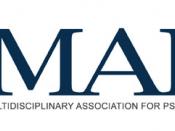IT'S NO ACCIDENT that MDMA's street name is "Ecstasy." Users of the drug report feelings of bliss, connection, and peace. They find that their relationships -- with other people, with the world -- are radically enhanced. Best of all, MDMA lacks the out-of-control feeling of LSD and other psychedelics, which is why many users have jumped to the conclusion that it is relatively safe. Yet growing evidence suggests that MDMA isn't quite a "soft" drug. Scientists have now confirmed that MDMA damages brain cells. Dozens of deaths by over-heating, heart problems, and unexpected overdoses have been reported. Even seemingly responsible measures to prevent overheating have themselves proven fatal. And just last month, researchers found that women who took MDMA during pregnancy had a birth-defect rate five times higher than normal. What's worse, years of careless drug-war politics have trained our ears to screen out claims of danger -- and it's preventing this information from reaching those who need it.
Politicians love to exaggerate drug risk, and when people get high and don't experience the horrors predicted, they discount negative information as mere propaganda. Even those who should know better -- people working to help drug users protect themselves from harm -- can be misled. Rather than considering that MDMA may not be safe, many harm reductionists have instinctively tried to debunk the research or tar scientists as government apologists. "People care very deeply about this drug and they know an enormous number of people who have taken it without problems." says Dr. John Morgan, a professor of pharmacology at CUNY medical school, "[Advocates] want to see researchers who did these studies as schlemiels or schnooks, but at this point there really is not much criticism possible [of the human neurotoxicity data]... the time to worry is now." So what do the data show? In animals, there is direct evidence that even the equivalent of one human dose can kill parts of serotonin neurons, which are believed important in maintaining positive mood; brain scans of heavy human users find significantly less activity in these cells. Some advocates claim that the same changes are caused by Prozac, but this is not so; with Prozac, changes take place through normal regulatory processes -- not through actual cell damage. In addition, there are liver problems. The enzyme which metabolizes MDMA is deficient in 3-10% of people tested. Researchers believe that those who die on a normal dose -- while their friends have no trouble -- may have this deficiency, but why it is that so few die is still mysterious. To make matters worse, some researchers believe that the brain damage is caused by MDMA metabolites, not the drug itself. This means that the minority of users who do have the liver problem have more risk of overdose but less risk of brain damage, while the majority with normal livers are less likely to OD but more likely to harm their brains -- a "lose-lose" situation, for sure.
Still, skeptics will want to know why we haven't seen more problems, if MDMA is in fact killing brain cells in millions of people who take it regularly. Dr. Una McCann, a leading MDMA researcher at Johns Hopkins University Medical School offers one explanation: In cases of Parkinson's Disease, 80% of dopamine neurons must die before victims of the movement disorder experience symptoms -- and the same could be true here. Symptoms might not be seen until people have taken large quantities of MDMA, or until they lose additional neurons to aging. Negative MDMA effects might also be misattributed: Serotonin damage might result in low mood and high anxiety, which could be misdiagnosed as stress. Granted, there aren't good data on the prevalence of depression and other psychiatric problems in heavy MDMA users, but lower than normal levels of a serotonin byproduct are found in both those who attempt suicide and heavy MDMA users.
From what we know now, LSD is a safer drug than MDMA -- and it might be a good, if politically unviable, idea to suggest it as an alternative. British sociologist Peter McDermott empathizes with users: "If I were 18 and my friends were doing it, I almost certainly would still take it. Do I think that's a sensible idea? Not at all! But young people tend to make decisions based on experience, not fine calculations of risk." Indeed, cautious scientific language usually pales in comparison with euphoric descriptions of an MDMA high. And people like Rick Doblin, President of the Multidisciplinary Association for Psychedelic Studies, an advocacy group for the use of MDMA in therapy, dismiss most of the latest research: "I'm not saying there are no risks -- but they have been massively exaggerated." he says. Given the difficulty in getting a fair hearing for the evidence against MDMA, the most pragmatic response may be to urge people to take it infrequently and in moderation -- or replace it with another, less harmful drug. We need a way, that is, to let users know we're giving them accurate information: neither moral spin, nor wishful thinking.
Maia Szalavitz is a journalist who has written for New York Magazine, The New York Times, The Washington Post, Newsday, The Village Voice, and other publications.
Post your thoughts on today's column in the FEED Daily Loop. For discussion of other recent FEED Dailies, check out last month's Daily Loop.





